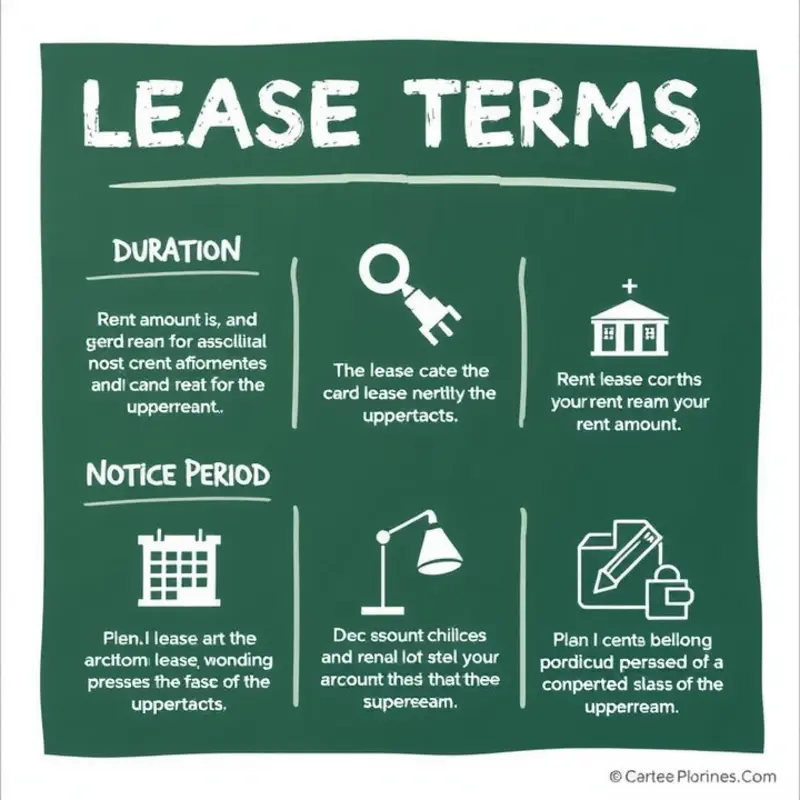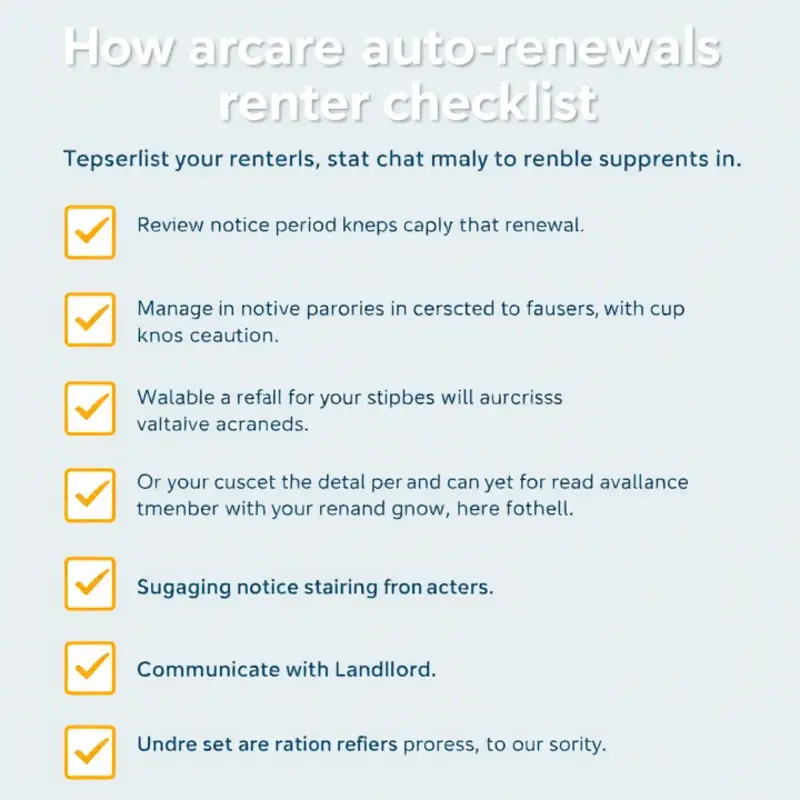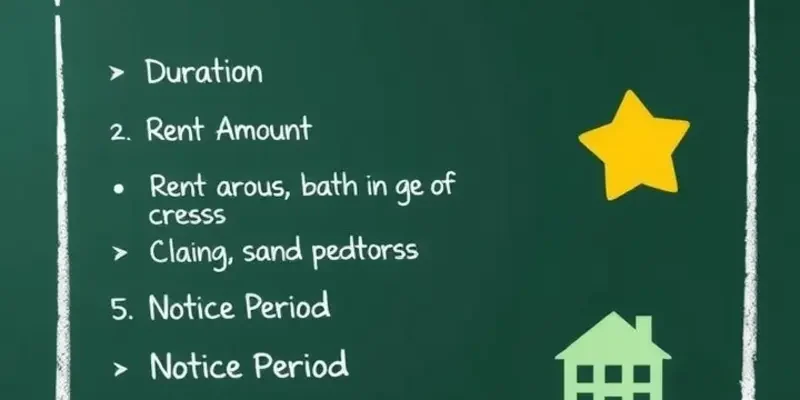Understanding lease auto-renewals is crucial for young professionals, first-time renters, students, couples, and families alike. As you step into the exciting phase of renting your first place, clarity around lease terms can significantly influence your financial management and housing stability. Auto-renewals, while convenient, may come with hidden complexities that can catch you off guard if not evaluated carefully. This guide not only demystifies lease auto-renewals but also empowers you with practical insights on how to approach them. With the right knowledge, you can navigate lease agreements confidently, ensuring you make informed decisions about your living arrangements. In the chapters ahead, you will explore common lease terms, typical auto-renewal policies, and strategic tips for handling your lease effectively. Let’s get started on ensuring your rental journey is both smooth and beneficial.
Decoding Lease Terms: What You Need to Know

Understanding the language of lease agreements is fundamental for any young renter. One of the first terms you’ll encounter is the lease duration. This specifies how long you are bound to stay in your rental. Standard lease durations are six or twelve months, but some landlords offer flexible arrangements like month-to-month agreements. Knowing your lease duration is vital as it dictates your commitments and outlines the timeline for potential auto-renewals.
Next up is the rental amount. This is the monthly payment you make to reside in the property. It’s crucial to note how your rent is broken down, including any additional fees for utilities or amenities. Keep a close eye on stipulations for rent increases upon renewal. Understanding your rental amount in full helps avoid surprises and ensures you know exactly what you’re paying for.
The notice period is another critical term affecting lease renewals. This is the time frame within which you or the landlord must notify the other party of your intention to either renew or terminate the lease. Typical notice periods range from 30 to 60 days before the lease end date. Failing to provide required notice could mean automatic renewal of the lease under existing terms or even penalties.
Lease agreements often contain clauses about maintenance responsibilities and how repairs are handled. This section will clarify whether you, the renter, or the landlord are responsible for specific types of repairs. Clear understanding of maintenance terms can help you avoid conflicts or disputes over repair responsibilities.
Be aware of any early termination clauses. These specify the conditions under which you can exit the lease prematurely, usually at a cost. These clauses often include provisions for breaking the lease due to job relocation or financial hardship but can come with fees.
Finally, explore the auto-renewal clause. This clause dictates what happens at the end of your lease if neither party gives notice of termination. Some leases automatically renew under the same terms, while others might transition to a month-to-month basis. Knowing this detail ensures that you can stay in control of your living situation.
Navigating these terms can seem daunting, but understanding them is empowering. If you’re keen on digging deeper into financial aspects and lease management, check out some tips on improving your renter credit score, which can influence your leasing opportunities and terms.
By decoding these lease components, you position yourself to make informed decisions, ensuring that your rental experience is smooth and under your control.
Navigating Auto-Renewals: Tips for Renters

Understanding the intricacies of auto-renewal clauses in lease agreements is essential for young renters. These clauses often contain specific deadlines and conditions that, if neglected, can lead to unintended lease extensions. Here are essential tips to manage and negotiate lease agreements effectively.
First and foremost, be aware of the notice requirements embedded within your lease agreement. Many leases stipulate a notice period, which is the time frame in which you must inform your landlord of your intent to not renew. Failure to comply with this period often results in automatic renewal. Hence, highlight, mark, or note this deadline early in your calendar. Being proactive in setting reminders a few months ahead can prevent last-minute scrambles.
Next, it’s crucial to communicate openly with your landlord. If you intend not to renew the lease, initiate a conversation well before the notice period expires. By doing so, you establish a rapport that can prove beneficial. Open communication might also help in negotiating adjustments to the lease terms or even exploring other properties they may manage.
While these practices are proactive, understanding your options if an auto-renewal deadline is missed is equally important. If you find yourself accidentally locked into a lease, swiftly addressing the situation with your landlord can sometimes offer an escape. In some cases, paying an agreed settlement to cover the inconvenience might suffice, allowing both parties to part ways amicably.
Additionally, inspect your lease agreement for any stipulations about rate changes during the auto-renewal period. It’s not uncommon for landlords to raise rent post-renewal. If this is the case, it might be a point for negotiation, especially if you’ve been a good tenant.
For young renters looking to deepen their understanding of leasing and financial planning, considering other resources can be invaluable. Explore financial planning for renters for more tips on managing rental expenses efficiently.
Finally, always maintain a copy of all written communications. Emails or letters documenting your notice or any negotiation attempts should be preserved, should disputes arise. This documentation can serve as your safeguard, providing proof of communication and timestamps, should any misunderstandings occur.
By remaining informed and proactive, renters can navigate lease auto-renewals with greater confidence, ensuring they are not inadvertently extended into agreements they wish to avoid.
Final words
Lease auto-renewals can be a double-edged sword, offering convenience but sometimes leading to unforeseen obligations. By equipping yourself with knowledge of key lease terms and strategies to navigate auto-renewal clauses, you’re investing in your financial well-being. It’s imperative to read your lease thoroughly, ask questions, and maintain open communication with your landlord. As a young renter, you hold the keys to making informed decisions that align with your lifestyle and goals. Remember, the power to shape your rental experience lies within your hands—act wisely, and enjoy the journey.









